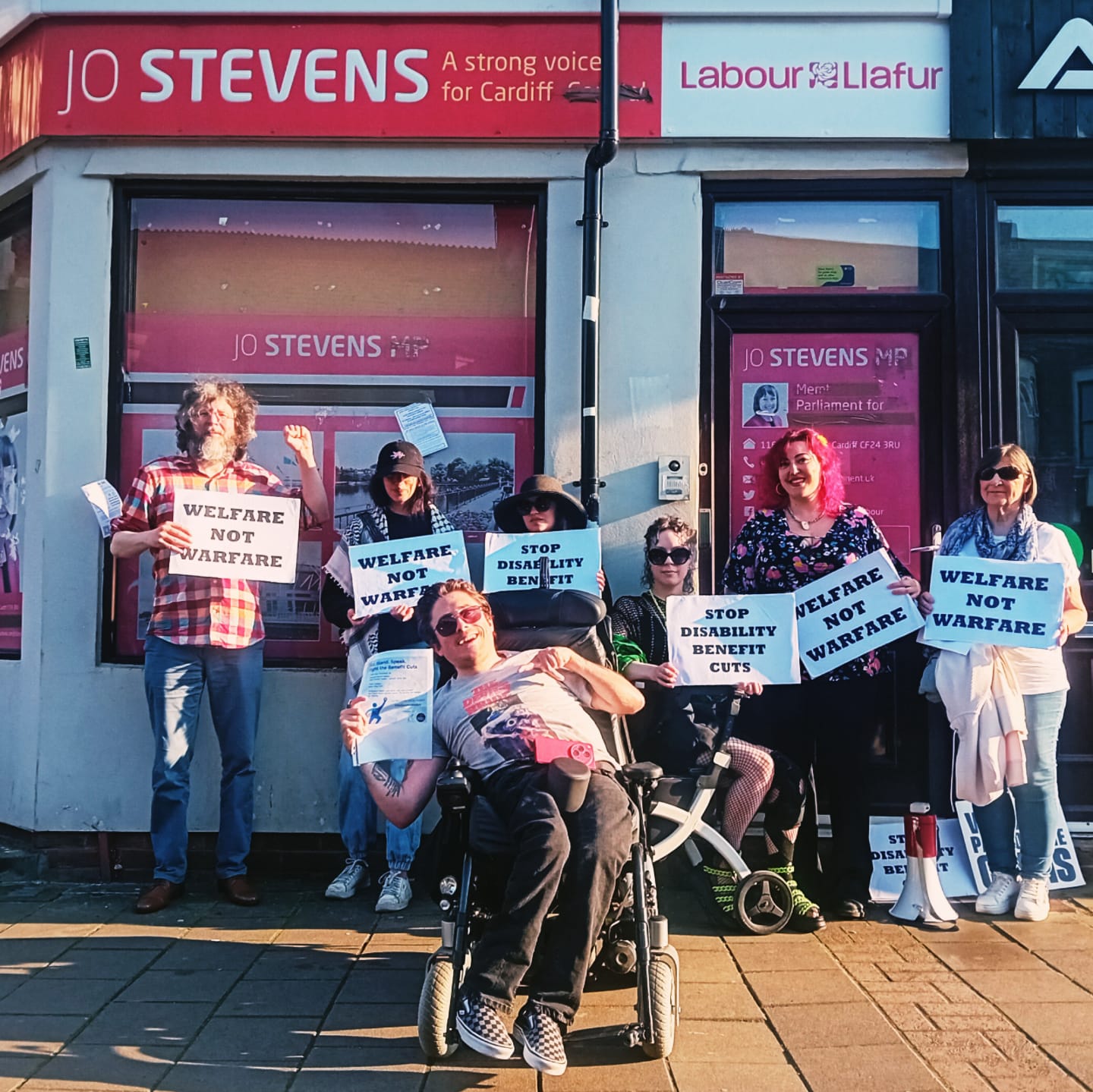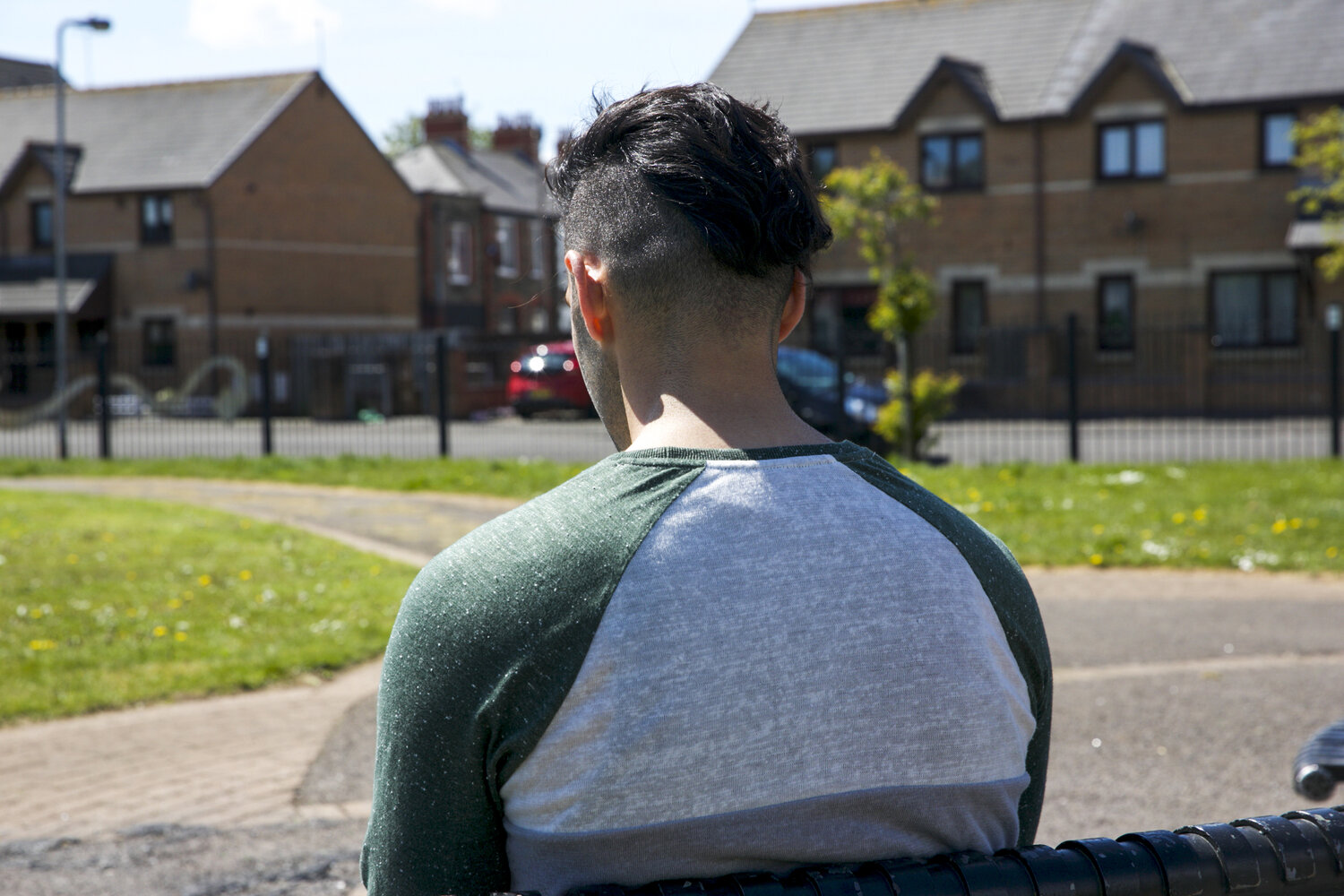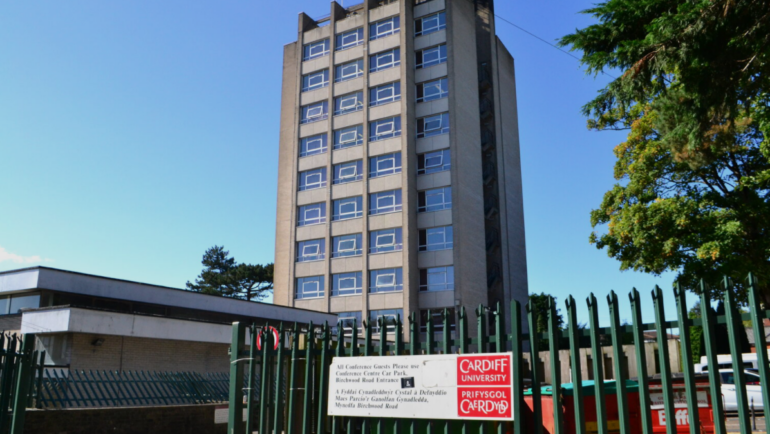
Disabled People Deserve Dignity — Not Cuts: Why I Can’t Stay Silent About PIP cuts
This Saturday, anti-austerity campaigners, disabled people, unpaid carers, trade unionists, and community groups will gather in Cardiff to demand that the Labour government abandon plans for the biggest cuts to disability benefits in history. With reports that Starmer may face the biggest backbench rebellion of his leadership to date, Sarah Houston writes on why people are taking to the streets.
By Sarah Houston on behalf of Cardiff People’s Assembly.
I’ve never paid much attention to politics. Despite my love for singing and theatre, I’ve never been someone who could shout the opinions of my heart to the world. But these days, my priorities have shifted. The UK government’s proposed cuts to Personal Independence Payment (PIP) have left me furious — and in that fury, I’ve found my voice. I can’t stay silent any longer.
Many of us in the disabled community had hope for a Labour government. Some were genuinely excited that we might finally have leadership that stood for the people. Instead, their rhetoric now echoes the same tired and dangerous narrative: that disabled people are burdens — drains on the system.
Let’s be clear: PIP is not a handout. It exists to give disabled people the independence we need to live full, dignified lives. It’s in the name! Yet under the guise of “getting more people off welfare and into work,” Labour is pushing some of society’s most vulnerable even deeper into poverty.
The facts speak for themselves: 16.1 million people in the UK are disabled — 24% of the population. Of those, just 3.7 million receive PIP. Not even a quarter. And now they want to make it even harder to claim. At present, only 51.6% of claims are accepted.
I’ve been rejected for PIP multiple times. Each time, the system claimed there was “nothing wrong” with me — scoring me zero on every part of the assessment. But I’m 23 and I use a walking stick. I’m 23 and in constant pain. I’m 23 and have days where the pain is so bad I can’t stand or walk. If there were truly “nothing wrong,” I wouldn’t need to rely on friends and family just to cook, wash dishes, or go to the shop.
Time and again, disabled people are told: “You say you can’t do this, but we’ve decided you can.” Strangers who’ve never met us — who know nothing about our daily lives — are given the power to decide whether we deserve support. It’s dehumanising. We’re reduced to paperwork and tick-boxes.
If this process were fair, assessment panels would include disabled people — those who understand what we live through. If those making the rules knew what it was like to live with disability, they wouldn’t be cutting our access to a dignified and independent life.
Every day, we face ableism and discrimination. It’s not just something you read about online. It’s in the side-eye on the bus when I sit in a disabled seat because I don’t “look disabled.” It’s in the comments: “It’s all in your head,” “You’re too young to be disabled,” “You’re faking it.” It’s in the employers who silently pass us over — because why hire a disabled person when someone else might be faster or easier to manage?
We are surrounded by discrimination. We fight every day just to be seen, just to be heard. This is not a rare story. If you’re disabled in the UK, your first battle is simply to be believed.
These are the reasons why only 54% of disabled people are in work — not because we don’t want to be, but because the system is rigged against us. Employers see us as risks, complications, liabilities.
If the government truly wants to get more disabled people into work, they need to change the system to actually be accessible. That means:
- Fixing public transport so it’s reliable, accessible, and safe
- Mandating workplace accessibility — covering all disabilities, not just visible ones
- Training employers on chronic illness, neurodiversity, and disability inclusion
- Connecting businesses with disability organisations to foster understanding
- Facilitating flexible working — because we don’t stop being disabled from 9 to 5
We don’t choose when we have flare-ups or mental health crises. We’re not “flaky” or “unreliable.” We’re disabled in a world that wasn’t built for us.
I know many people — myself included — who’ve lost jobs for “misconduct” when the real issue was miscommunication and a lack of understanding. Companies care about their bottom line. But we need to hold them — and our government — accountable. If Labour wants us in work, they need to make workplaces safe for us. Not cut our funding and push us into environments that harm our health.
The Labour government is supposed to be a government for the people. We are the people. And right now, it’s very clear that they are not here for us. We should not have to fight to be seen as equal, or worthy of support. They claim these cuts are to “help” us — but all they’re doing is hurting us.
Every disabled person I know who receives PIP is either working or trying to work. PIP doesn’t make us rich — it barely covers the essentials. But it helps. It gives us a sliver of freedom: the ability to take a taxi when public transport fails us, to buy assistive equipment, to access therapy. To survive.
These proposed cuts will damage the already fragile access we have to basic independence. And for what?
So the government can redirect millions to war and “national defence”? If a country can’t take care of its own people, how can it justify spending so much on anything else?
These cuts will leave millions of disabled people vulnerable — at risk of poverty and homelessness. We are done being quiet. We are done being shamed for needing support in a world that doesn’t accommodate us. We are done being labelled as lazy, fraudulent, or unworthy.
Labour promised to stand for the people. We are the people. And we’re telling them now: this is not support — this is betrayal.
Join me, the Cardiff People’s Assembly, Don’t Call Me Special, and countless others this Saturday (May 24th) at 1pm at the Aneurin Bevan statue on Cardiff Queen Street.
Let’s stand together and say: we will not be ignored.


